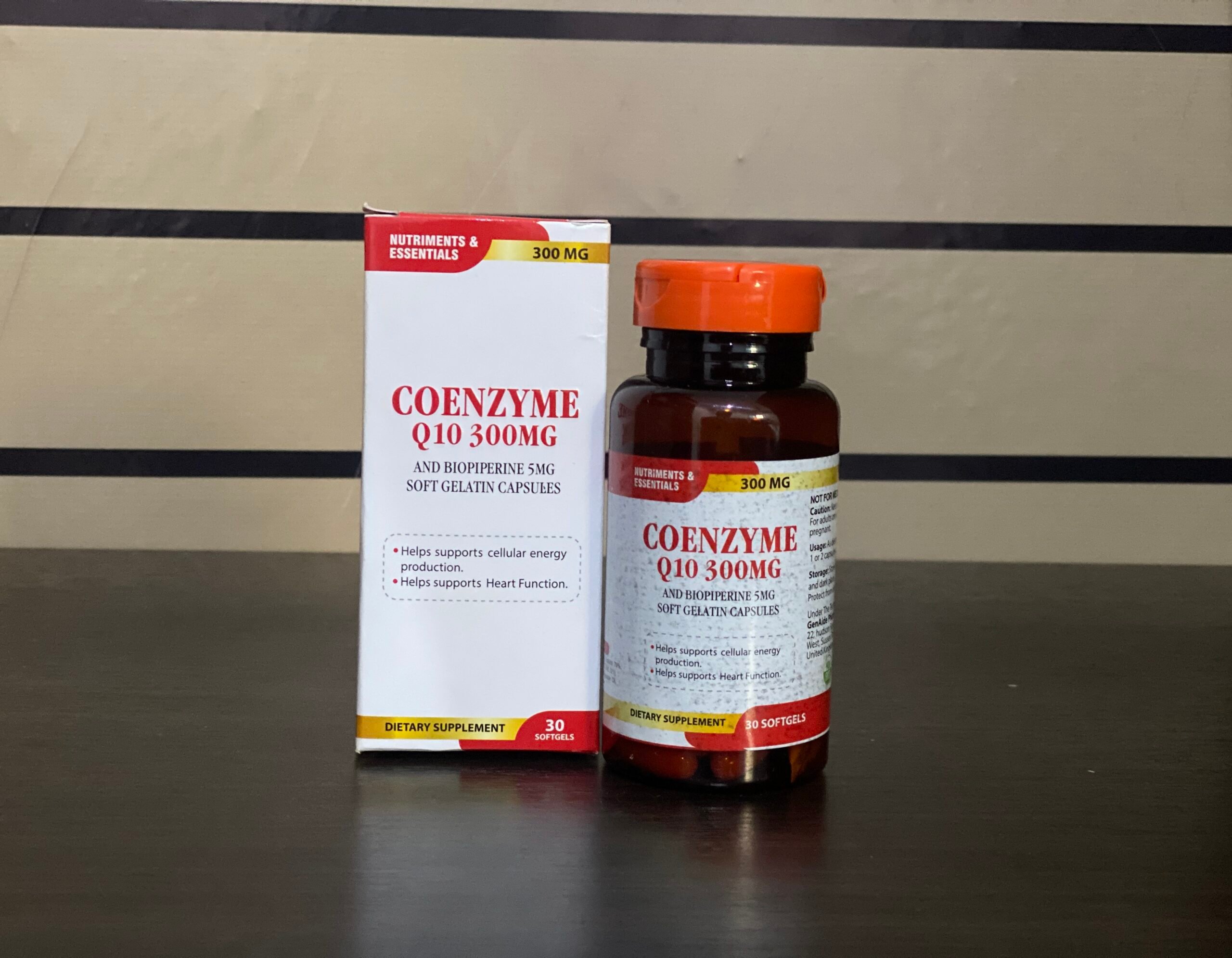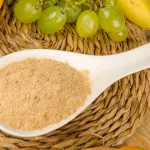CoQ10 may support the skin, brain, and lungs and could offer protection against chronic illnesses such as cancer and type 2 diabetes. Further investigation is needed to clarify these possible advantages.
Coenzyme Q10 (CoQ10) is a substance that helps produce energy within your cells. Levels decline with age, although you can obtain it from food sources or supplements.
Lower CoQ10 concentrations have been linked with conditions like cancer, type 2 diabetes, and neurodegenerative diseases. Whether these associations reflect causation remains uncertain.
Below is an overview of nine potential benefits and important safety considerations.
What is CoQ10?
CoQ10 is distributed throughout the body, with the greatest concentrations in the heart, liver, kidneys, and pancreas. It helps generate cellular energy by facilitating the production of adenosine triphosphate (ATP), a key molecule in energy transfer. It also functions as an antioxidant that shields cells from oxidative stress.
Ubiquinol is the reduced (active) form of CoQ10, and ubiquinone is the oxidized form. The body interconverts these forms, and ubiquinol predominates in circulating blood.
What does CoQ10 do for the body?
Oxidative stress — cellular injury caused by free radicals — can disrupt normal cellular processes and may play a role in many health issues. Several chronic conditions have also been associated with reduced CoQ10 levels.
CoQ10 production declines with age, so older adults are more likely to have insufficient amounts of this compound.
Possible contributors to low CoQ10 include:
- genetic defects affecting CoQ10 synthesis or utilization
- increased tissue demand due to illness
- mitochondrial disorders
- oxidative stress from aging
- side effects of statin medications
CoQ10 may help treat heart failure
Some evidence indicates that CoQ10 could improve outcomes for people with heart failure.
According to a review, CoQ10 might be useful for managing heart failure when used in combination with standard therapies, though additional research is warranted. Studies referenced in the review reported that people with heart failure who received CoQ10 supplements experienced lower risks of death or hospitalization and greater improvements in left ventricular ejection fraction compared with placebo.
CoQ10 may also help restore efficient energy production and lessen oxidative damage, which could support heart failure treatment.
Nonetheless, definitive evidence neither confirms nor denies the benefit of CoQ10 for heart failure patients, so more trials are required.

CoQ10 may help with fertility
Female fertility diminishes with age due to reductions in both the number and quality of eggs.
CoQ10 is involved in this process; production slows with advancing age, reducing the ability to protect eggs from oxidative damage.
Supplementing with CoQ10 may help preserve egg quality and counteract this age-related decline in egg number and quality.
Male fertility can also be affected by oxidative stress, which may reduce sperm count and quality and contribute to infertility.
Some studies suggest that CoQ10 supplementation can improve sperm motility and concentration by enhancing antioxidant defenses.
CoQ10 may support skin health with aging
Factors such as cellular damage or hormonal shifts can reduce skin moisture and defenses against environmental harm, and cause skin layers to thin.
Research indicates that topical application of CoQ10 may decrease oxidative damage from UV radiation, reduce wrinkle depth, and boost antioxidant protection.
CoQ10 may reduce migraine
Impaired mitochondrial function can result in low energy within brain cells and may contribute to migraine, a neurological disorder marked by severe headaches and sensitivity to light and sound.
CoQ10 is concentrated in cell mitochondria and may play a role in migraine management.
One review found that CoQ10 can effectively lower the severity, duration, and frequency of migraine attacks in adults who experience migraines.
CoQ10 may benefit exercise performance
Mitochondrial dysfunction can diminish muscle energy, making contractions less efficient and reducing exercise endurance.
CoQ10 may enhance exercise capacity by lowering oxidative stress at the cellular level and improving mitochondrial function.
Additionally, supplementing with CoQ10 has been shown in some studies to reduce markers of muscle damage and fatigue, potentially improving physical performance.
CoQ10 may help with diabetes management
Oxidative stress can damage cells and contribute to metabolic disorders such as insulin resistance and diabetes.
A review suggests CoQ10 may help enhance insulin sensitivity and assist in blood sugar regulation.
It may also reduce indicators of oxidative stress compared with placebo in some studies.
CoQ10 may play a role in cancer prevention
Because CoQ10 can lower oxidative stress, a factor implicated in cancer development, it might help in cancer prevention. Some studies report that reduced CoQ10 levels are linked to a higher risk of certain cancers, although more research is necessary.
Some evidence suggests CoQ10 may inhibit cancer cell growth, and people with cancer often have lower CoQ10 levels.
Older studies have associated low CoQ10 with elevated risks for certain cancers, including breast and prostate cancers; some data also point to a connection with lung cancer.
However, authoritative reviews conclude that CoQ10 has not been proven to be an effective cancer treatment, so further research is needed before drawing firm conclusions.
CoQ10 may benefit brain health
Mitochondrial performance typically declines with age, which can contribute to neuronal loss and conditions like Alzheimer’s and Parkinson’s disease.
The brain is particularly vulnerable to oxidative damage because of its high fatty acid content and oxygen demands.
This oxidative stress increases production of harmful compounds that can impair memory, cognition, and motor function. Some research links reduced blood CoQ10 with greater neurotoxicity from accumulation of certain brain proteins.
Animal studies suggest CoQ10 might lower damaging compounds and potentially slow progression of Alzheimer’s and Parkinson’s disease, but human data are limited and more clinical research is required.
CoQ10 may have a protective effect on the lungs
Heightened oxidative damage in the lungs and diminished antioxidant defenses, including reduced CoQ10 levels, can contribute to lung disorders such as chronic obstructive pulmonary disease (COPD) and asthma.
Research from 2021 found that people with these respiratory conditions tend to have higher amounts of oxidized CoQ10 in lung tissue, indicating increased oxidative stress: research from 2021.
One study reported that combining CoQ10 with creatine, a compound present in muscle cells, produced improvements in functional capacity, perceived breathlessness, and body composition in people with COPD.
How much CoQ10 should I take?
CoQ10 is generally well tolerated and rarely causes serious adverse effects. It is available in two primary forms: ubiquinol and ubiquinone.
Research indicates little difference in absorption between ubiquinol and ubiquinone.
CoQ10 supplements are sold in a variety of strengths, though you should follow product directions.
Heart-related studies commonly use 100–400 mg per day, while higher doses, from 600 to 3,000 mg, have been trialed for certain neurodegenerative conditions.
For many people, taking 100–200 mg twice daily with food is considered a typical regimen to maintain therapeutic blood levels of CoQ10.
Because CoQ10 is fat-soluble, its absorption is limited and slow. Taking supplements with a meal enhances absorption, and soft-gel formulations are absorbed more effectively than some other preparations: more efficiently.
Some products include pre-processed forms of CoQ10 or combine CoQ10 with oils to improve uptake.
Can I get CoQ10 from food?
CoQ10 is available as a supplement, but it is also present in certain foods.
Foods that contain CoQ10 include:
- Organ meats: heart, liver, kidney
- Some muscle meats: pork, beef, chicken
- Fatty fish: trout, herring, mackerel, sardines
- Legumes: soybeans, lentils, peanuts
- Nuts and seeds: sesame seeds, pistachios
- Oils: soybean and canola oil
Some fruits, vegetables, dairy items, and cereals also contain CoQ10, though usually in smaller amounts.
Frequently asked questions
What happens when you take CoQ10 every day?
Daily CoQ10 supplementation appears well tolerated in humans, even at higher doses in some studies. Still, use it according to recommended guidelines.
Possible side effects include insomnia or digestive upset. Avoid CoQ10 if you take blood thinners like warfarin (Coumadin, Jantoven) or certain cancer therapies without medical advice.
Is there any downside to taking CoQ10?
CoQ10 can reduce the effectiveness of warfarin and may interact with some blood pressure or cancer medications.
What vitamins should I not take with CoQ10?
Research on interactions between CoQ10 and other vitamins is limited. Available evidence suggests combining CoQ10 with various vitamins is likely safe and may be beneficial, but consult your healthcare provider before starting CoQ10 and inform them about all medications and supplements you use.
The bottom line
CoQ10 is a fat-soluble, vitamin-like molecule that may offer health benefits.
Research indicates it may support heart health and blood sugar control, offer protective effects against certain cancers, and lower migraine frequency.
It may also lessen oxidative damage that contributes to muscle fatigue, skin aging, and brain and lung disorders. However, more robust research is necessary to confirm these effects.
CoQ10 supplements are widely available and generally well tolerated, but consult your doctor before beginning any supplement. You can also raise your CoQ10 intake through food sources such as:
- organ and muscle meats
- oils
- nuts
- seeds
- legumes
If you opt for a supplement, select a reputable product that has been third-party tested to ensure quality and safety.


















Leave a Reply
You must be logged in to post a comment.